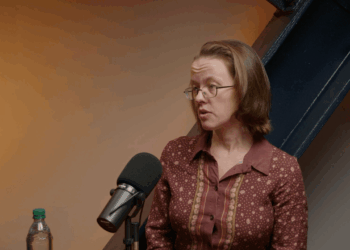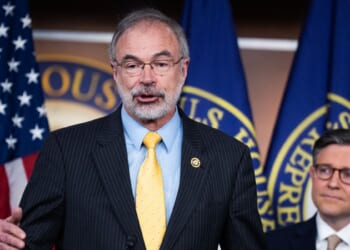
Voting rights activists urged the Supreme Court to prevent Texas from using a new, more Republican-friendly congressional map in next year’s elections, telling the justices on Monday that the state illegally discriminated against minority voters.
Chad Dunn, a lawyer for the activists, said Gov. Greg Abbott and other legislators involved in the map-drawing were clear on their intent to erase districts where minorities predominated — so-called “coalition districts.”
The result — a map that could net Republicans an additional five seats in the next congressional election — focused far too heavily on race to be legal, Mr. Dunn argued.
“This is as stark a case of racial gerrymandering as one can imagine,” he said in a new filing with Justice Samuel A. Alito Jr.
Riding on the outcome of the case is the possible swing of up to five seats in Texas, which are currently held by Democrats but which the GOP believes are winnable under the new lines drawn this summer.
A district court, in a 2-1 ruling, found Texas’ new map was likely illegal and ordered the state to stick with its old, more Democratic-friendly map. The state rushed to the Supreme Court late last week seeking permission to keep the new GOP-friendly map in place.
Justice Alito put the lower court ruling on hold and asked for more briefs by today.
Mr. Abbott says his state redrew the lines for political gain, not for reasons of race. Political gerrymandering is legal.
Hanging over the legal arguments is what’s known as the Purcell principle. Named for a Supreme Court precedent that created it, the Purcell principle cautions courts against making changes to election rules in the run-up to voting.
According to a back-and-forth in the lower court opinions, Judge Brown had rushed his ruling because he didn’t want to trigger the Purcell principle. He figured the faster he got his decision out, the more time all sides would have to adjust to the map they would use.
Justice Alito, in his action Friday, put Judge Brown’s ruling on hold, effectively restoring the balance of the Purcell principle to the GOP-friendly map.
That’s particularly true given that the candidate filing period for the spring primary elections began Nov. 8, even before the lower court’s ruling, and runs through Dec. 8.
Facing that reality, Mr. Dunn on Monday argued the Purcell principle shouldn’t matter at all, saying “the election is a year away.” He also said the state has said it could extend the filing deadline by a week to give candidates more leeway.
And he said it’s Texas’ own fault that there’s “confusion.”
“Texas waited until weeks before the candidate filing deadline opened to voluntarily redistrict its congressional map, while openly and intentionally dismantling districts based on race,” Mr. Dunn argued.










